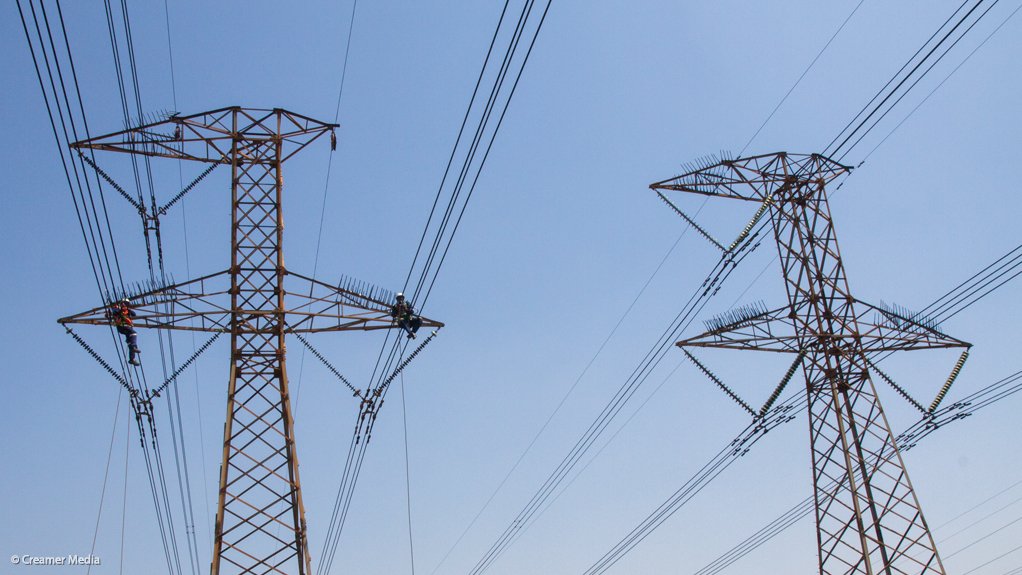- OECD Economic Survey of South Africa 20254.59 MB
A new Organisation for Economic Cooperation and Development (OECD) report recommends allowing South African municipalities to enter into concession agreements with independent electricity distribution companies to help address the maintenance and investment backlogs that are undermining security of supply.
The recommendation is made in the latest OECD Economic Survey of South Africa, which includes a chapter on the country’s electricity sector, which has been central to the country’s economic underperformance for nearly two decades and where risks persist despite a recent reduction in extreme loadshedding.
Releasing the report in Johannesburg, director of country studies Luiz de Mello highlighted the difficulties many municipalities faced in maintaining and expanding their electricity distribution networks.
Therefore, the OECD recommended that government consider transferring operations of struggling municipalities to third parties in the medium to long term.
“A concession agreement with an independent company could ensure the necessary investments that municipalities are currently unable to finance, while generating stable revenue through concession fees,” the report stated.
However, it also stresses that clear provisions for service quality delivery, access and affordability would be essential.
The OECD notes that Portugal had adopted a model of transferring operations to private operators while municipalities retained ownership of the distribution grid and that, by 2020, the European country had 13 such distribution system operators.
However, the report acknowledges that opening distribution to private participants could amplify the financial distress of some municipalities and, thus, suggests that other reforms be considered in parallel, including a potential reviving of the regional energy distributors (REDs) initiative of the 1990s.
The report states that the REDs model could help raise financing, optimise investment and improve governance, but would require a Constitutional amendment and could, thus, not be pursued immediately.
“In the interim, the government could incentivise informal case-by-case pooling, such as financial rewards for large, well-functioning municipalities mentoring smaller ones or tie the debt moratorium framework for distressed municipalities to capacity-building efforts with well-functioning municipalities.”
In addition, the report proposes that consideration be given to municipal partnerships or shifting responsibilities to provinces, which it says could help address managerial capacity issues in the near term.
De Mello also noted with concern the fact that many South African municipalities still relied heavily on revenues from electricity sales, which currently contributed between 25% and 30% of total municipal government income.
By applying a mark-up to electricity purchased from Eskom, municipalities earned about R23-billion yearly which was meant to help fund infrastructure.
“Amidst tight fiscal constraints and high indebtedness, municipalities often use electricity revenues to cross-subsidise debt and fund other initiatives, paring back spending on the electricity network under their responsibility,” he noted.
In addition, as bulk tariff increases placed pressure on margins, municipalities were now exploring surcharges to sustain revenue.
Speaking at the launch of the report, Deputy Finance Minister Ashor Sarupen noted the OECD’s recommendations to revise municipal funding models, as well as to align electricity revenues with infrastructure investment.
“Government is already taking steps in this direction.
“As part of Operation Vulindlela Phase II, we are working to shift both water and electricity services to a utility model.
“This will help ensure that municipal services are financially sustainable and better managed.
“A broader review of the local government funding model is also underway to strengthen how infrastructure is funded and delivered at the local level,” Sarupen said.
De Mello commended government on the reforms being pursued to strengthen local government and improve the delivery of basic services as part of Operation Vulindlela Phase II, as well as the fact that the National Energy Crisis Committee’s Workstream Five was specifically focused on reforms within the electricity distribution sector.
It also said that enabling municipalities to procure electricity from independent power producers and/or develop their own generation capacity could advance energy security and decarbonisation, but was constrained by the complexity of procurement contracts and a lack of project management capabilities.
ONGOING REFORM
Outside of the distribution sectors, the report make several other recommendations in relation to the ongoing reforms of South Africa’s electricity sector, including:
- Boosting competition in the generation sector by concluding the reform of trading rules (including in relation to the market code, vesting contracts and tariffs regulation) to ensure a level playing field in the upcoming wholesale market;
- Accelerating Eskom's unbundling, including by establishing a fully independent entity to neutrally manage the transmission grid;
- Reducing the gap between renewable-energy bid windows to ramp up supply, which is still lagging OECD norms with regard to solar and wind penetration levels;
- Accelerating public and private investment into the transmission grid, including through the procurement of capacity from independent transmission projects;
- Fostering an investment-friendly environment for independent transmission investors, while reducing the reliance on sovereign guarantees using specific derisking tools, such as the Credit Guarantee Vehicle developed with the World Bank; and
- Earmarking electricity revenues to investment in the distribution network and better regulating cross-subsidisation of other services.
“Despite major progress, important challenges remain to address electricity shortages.
“Priority should be given to establishing a competitive electricity market, with higher private investment and a more efficient transmission network.
“Redefining the role of municipalities, including with greater retail competition and potentially concessions, would improve distribution and services for consumers,” De Mello asserted.
EMAIL THIS ARTICLE SAVE THIS ARTICLE ARTICLE ENQUIRY FEEDBACK
To subscribe email subscriptions@creamermedia.co.za or click here
To advertise email advertising@creamermedia.co.za or click here











